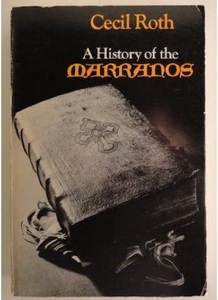NAMES ANALYSIS REPORT
You searched for:"Maimon",
Here's what we found
The English meaning of Maimon is Faithful or fortunate.
The name Maimon is of Arabic origin.
There are many indicators that the name Maimon may be of Jewish origin, emanating from the Jewish communities of Spain and Portugal.
When the Romans conquered the Jewish nation in 70 CE, much of the Jewish population was sent into exile throughout the Roman Empire. Many were sent to the Iberian Peninsula. The approximately 750,000 Jews living in Spain in the year 1492 were banished from the country by royal decree of Ferdinand and Isabella. The Jews of Portugal, were banished several years later. Reprieve from the banishment decrees was promised to those Jews who converted to Catholicism. Though some converted by choice, most of these New-Christian converts were called CONVERSOS or MARRANOS (a derogatory term for converts meaning pigs in Spanish), ANUSIM (meaning "coerced ones" in Hebrew) and CRYPTO-JEWS, as they secretly continued to practice the tenets of the Jewish faith.
Our research has found that the family name Maimon is cited with respect to Jews & Crypto-Jews in at least 8 bibliographical, documentary, or electronic references:
A History of the Marranos, by Cecil Roth.
The expulsion of the Jews from Spain in 1492 by the infamous decree of King Ferdinand and Queen Isabella was the culmination of a series of anti-Jewish persecutions throughout the 14th and 15th centuries in which thousands of Jews were massacred. Thousands of others converted in order to escape death. After the expulsion many more joined the ranks of these "new Christians" as an alternative to exile. A large number of converts, while outwardly professing Christianity, secretly continued to practice Judaism. These Marranos, as they were popularly known, were then mercilessly persecuted by the dreaded Inquisition which through tortures of forced confessions and auto-da-fes sent thousands to the stake. Many others managed to escape to countries outside the reach of the Inquisition where they created a widespread Marrano diaspora. Thousands of Marranos have survived even into our times. This seminal work by the eminent historian traces the tribulation of these secret Judaizers as well as the fate of those who succeeded in escaping to other lands where many of them rose to prominence in various fields of endeavor.
Sangre Judia (Jewish Blood) by Pere Bonnin. Flor de Viento, Barcelona, 2006. A list of 3,500 names used by Jews, or assigned to Jews by the Holy Office (la Santo Oficio) of Spain. The list is a result of a census of Jewish communities of Spain by the Catholic Church and as found in Inquisition records.
Pere Bonnin, a philosopher, journalist and writer from Sa Pobla (Mallorca), a descendant of converted Jews, settles with this work a debt "owed to his ancestors", in his own words. The book, written in a personal and accessible style and based on numerous sources, includes a review of basic Jewish concepts, Jewish history in Spain, and Christian Anti-Semitism. There is also a section that focuses on the reconciliation between the Church and Monarchy and the Jews, which took place in the 20th Century. In this study, Bonnin deals in depth with the issue of surnames of Jewish origin. In the prologue, the author explains the rules he followed in the phonetic transcription of surnames of Hebrew origin that are mentioned in the book. The researcher cites the Jewish origin, sometimes recognized and other times controversial, of historically prominent figures (like Cristobal Colon, Hernan Cortes, Miguel de Cervantes Saavedra and many others) and links between surnames of Jewish origin with some concepts in Judaism.. The book also includes an appendix with more than three thousands surnames "suspected" of being Jewish, because they appear in censuses of the Jewish communities and on the Inquisitorial lists of suspected practitioners of Judaism, as well as in other sources. In the chapter "Una historia de desencuentro", the author elaborates on surnames of Jewish origin of the royalty, nobility, artistocracy, clergy, and also of writers, educators and university teachers during the Inquisition. Special attention is given to the "Chuetas" of Mallorca, the birthplace of the author.
Sephardic names from the magazine "ETSI". Most of the names are from (but not limited to) France and North Africa. Published by Laurence Abensur-Hazan and Philip Abensur.
ETSI (a Paris-based, bilingual French-English periodical) is devoted exclusively to Sephardic genealogy and is published by the Sephardi Genealogical and Historical Society (SGHS). It was founded by Dr. Philip Abensur, and his professional genealogist wife, Laurence Abensur-Hazan. ETSI's worldwide base of authors publish articles identifying a broad spectrum of archival material of importance to the Sephardic genealogist. A useful feature of ETSI is the listing, on the back cover, of all Sephardic family names, and places of origin, cited in the articles contained in each issue
From the civil records of Amsterdam, The Netherlands
The Amsterdam Municipal Archives possess a complete set of registers of intended marriages from 1578 to 1811, the year when the present Civil Registry was started. Between 1598 and 1811, 15238 Jewish couples were entered in these books. Both the number of records and the volume of data that may be extracted from them are unprecedented.
From the records of Bevis Marks, The Spanish and Portuguese Congregation of London
Bevis Marks is the Sephardic synagogue in London. It is over 300 years old and is the oldest still in use in Britain.The Spanish and Portuguese Jews' Congregation of London has published several volumes of its records: they can be found in libraries such as the Cambridge University Library or the London Metropolitan Archive
Finding Our Fathers: A Guidebook to Jewish Genealogy, by Dan Rottenberg
In this work Dan Rottenberg shows how to do a successful search for probing the memories of living relatives, by examining marriage licenses, gravestones, ship passenger lists, naturalization records, birth and death certificates, and other public documents, and by looking for clues in family traditions and customs. Supplementing the "how to" instructions is a guide to some 8,000 Jewish family names, giving the origins of the names, sources of information about each family, and the names of related families whose histories have been recorded. Other features included a country-by-country guide to tracing Jewish ancestors abroad, a list of Jewish family history books, and a guide to researching genealogy.
Apellidos de Judios Sefardies (Surnames of the Sephardic Jews) from the site Comunidad Judia Del Principado de Asturias
The Principality of Asturias (Spanish: Principado de Asturias - Asturian: Principáu d'Asturies) is an autonomous community within the kingdom of Spain, former Kingdom of Asturias in the Middle Ages. It is situated on the Spanish North coast facing the Cantabrian Sea (Mar Cantábrico, the Spanish name for the Bay of Biscay). The most important cities are the provincial capital, Oviedo, the seaport and largest city Gijón, and the industrial town of Avilés. No one knows the exact date at which Jews arrived in Asturias. Based solely on the documentation found so far in Asturias, there are clear references to the mid-eleventh century Council of Coyanza held in the Diocese of Oviedo in 1050 which states in Chapter VI: "... no Christian shall live in the same house with Jews or eat with them; if anyone infringes our constitution, they shall do penance for seven days, and if not willing to do it, being a noble person, they shall be deprived of communion for a full year, and if an inferior person they will receive a hundred lashes." But it is in the twelfth century when the rise and importance of the Jewish people is more noticeable in this region. Jewish witness signatures begin to appear more often on donation pledge cards from 1133. Asturias names are not very common among the Jewish population in other parts of the peninsula around the same time, perhaps causing confusion.
Sangre Judia (Jewish Blood) by Pere Bonnin. Flor de Viento, Barcelona, 2006. A list of 3,500 names used by Jews, or assigned to Jews by the Holy Office (la Santo Oficio) of Spain. The list is a result of a census of Jewish communities of Spain by the Catholic Church and as found in Inquisition records.
Pere Bonnin, a philosopher, journalist and writer from Sa Pobla (Mallorca), a descendant of converted Jews, settles with this work a debt "owed to his ancestors", in his own words. The book, written in a personal and accessible style and based on numerous sources, includes a review of basic Jewish concepts, Jewish history in Spain, and Christian Anti-Semitism. There is also a section that focuses on the reconciliation between the Church and Monarchy and the Jews, which took place in the 20th Century. In this study, Bonnin deals in depth with the issue of surnames of Jewish origin. In the prologue, the author explains the rules he followed in the phonetic transcription of surnames of Hebrew origin that are mentioned in the book. The researcher cites the Jewish origin, sometimes recognized and other times controversial, of historically prominent figures (like Cristobal Colon, Hernan Cortes, Miguel de Cervantes Saavedra and many others) and links between surnames of Jewish origin with some concepts in Judaism.. The book also includes an appendix with more than three thousands surnames "suspected" of being Jewish, because they appear in censuses of the Jewish communities and on the Inquisitorial lists of suspected practitioners of Judaism, as well as in other sources. In the chapter "Una historia de desencuentro", the author elaborates on surnames of Jewish origin of the royalty, nobility, artistocracy, clergy, and also of writers, educators and university teachers during the Inquisition. Special attention is given to the "Chuetas" of Mallorca, the birthplace of the author.
Around the 12th century, surnames started to become common in Iberia. In Spain, where Arab-Jewish influence was significant, these new names retained their old original structure, so that many of the Jewish surnames were of Hebrew derivation. Others were directly related to geographical locations and were acquired due to the forced wanderings caused by exile and persecution. Other family names were a result of conversion, when the family accepted the name of their Christian sponsor. In many cases, the Portuguese Jews bear surnames of pure Iberian/Christian origin. Many names have been changed in the course of migration from country to country. In yet other cases "aliases", or totally new names, were adopted due to fear of persecution by the Inquisition.
Some common variations of Maimon are Maimoun, Maymon, Barmaimom, Benmaimom,
The following websites are relevant to the surname Maimon:
http://www.ttec.com/maimon/hist.htm





